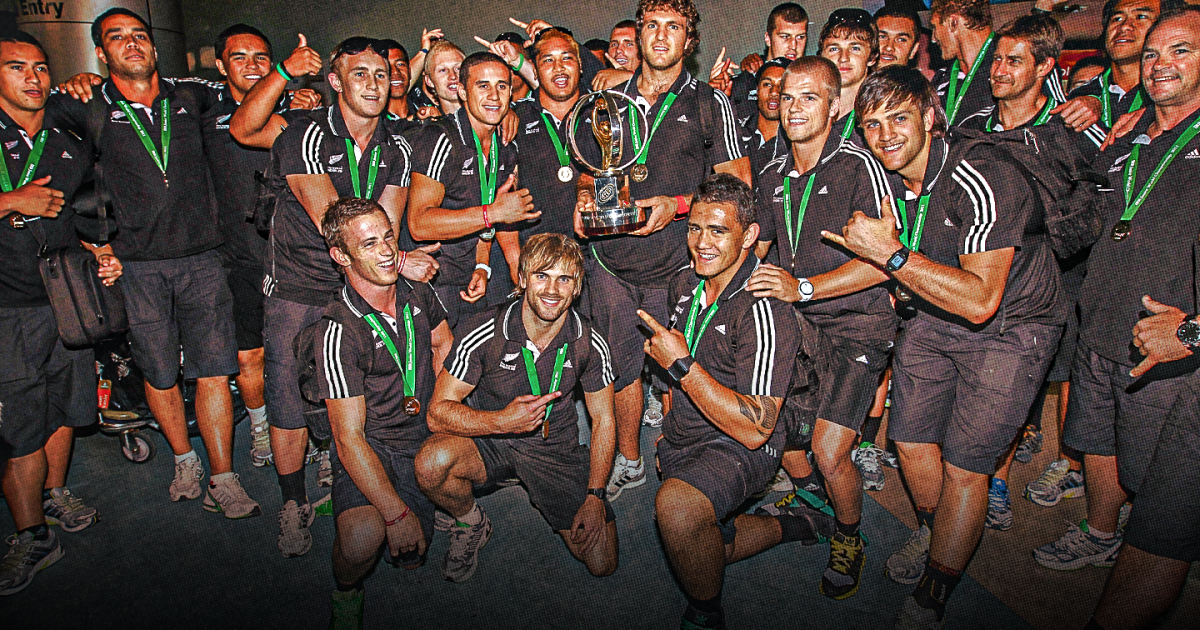Just 12 hours after the All Blacks had wrapped up a clean sweep against France, New Zealand’s Under-20 team played in the final of the World Junior Championship. They didn’t win it – in a weird parallel to the 2023 World Cup final, New Zealand suffered a red card mid-way through the first half and couldn’t then stay in the fight against a powerful South Africa – but the fact they made it that far, was a significant breakthrough.
You see, the New Zealand’s Under-20 team hadn’t been in a final since 2017 and there has been an obvious correlation between the demise of the age-grade side and the impact it has had on the All Blacks. There is a strong statistical basis to suggest that age-grade success has been a major factor in All Blacks success, and that one of the keys to New Zealand’s prolonged consistent excellence on the world stage has been the quality of their talent identification and development programmes.
New Zealand, for a long time, arguably led the world in player development and had this enviable system where it effortlessly found and nurtured age-grade superstars and transitioned them into the All Blacks.
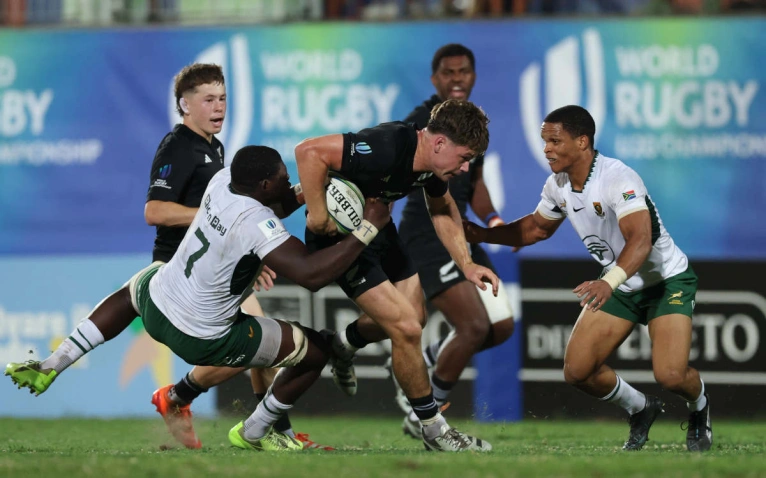 The appearance of the Baby Blacks in the World Rugby U20 Championship is a pleasing sign talent is coming through (Photo Timothy Rogers/Getty Images)
The appearance of the Baby Blacks in the World Rugby U20 Championship is a pleasing sign talent is coming through (Photo Timothy Rogers/Getty Images)
In that vein, it was perhaps telling that two of the strongest performers for the All Blacks in their recent series against France were Beauden Barrett and Codie Taylor.
Telling, because they are the last two survivors from what was arguably the greatest Under-20 team ever assembled.
Barrett and Taylor are the last two players standing – or at least playing for the All Blacks – from the 2011 New Zealand team that was crowned world champions and then went on to produce 16 international players.
Their playing cohort included Sam Cane, Brodie Retallick, TJ Perenara, Waisake Naholo, Charles Piutau and Steven Luatua.
It was the high-water mark for age-grade rugby in New Zealand, as not only did it produce 16 international players – many of whom have been integral to the All Blacks’ success for the last decade – but it was also the fourth consecutive world junior title that New Zealand had won.
In New Zealand’s golden age-grade era there was a steady stream of players graduating from the Under-20 ranks to the All Blacks, where they were able to make an immediate and lasting impression.
Since then, New Zealand has won just two more titles – in 2015 and 2017. But of greater concern is that in 2016, 2019 and 2023 (there were no tournaments between 2020-2022), they failed to make the semifinals.
From being almost untouchable between 2008 and 2011, New Zealand slipped a long way and the real age-grade force in the last decade has been England, who have won four titles, with France not so far behind on three.
In New Zealand’s golden age-grade era there was a steady stream of players graduating from the Under-20 ranks to the All Blacks, where they were able to make an immediate and lasting impression.
New Zealand appeared to have it sussed back then. It had this rugby intelligence ingrained in its schools that saw highly skilled players emerge into elite age-grade programmes, where the talent identification and development programmes were world class.
This conveyor belt would keep the talent flowing into the All Blacks, who between 2010 and 2016 only lost seven tests.
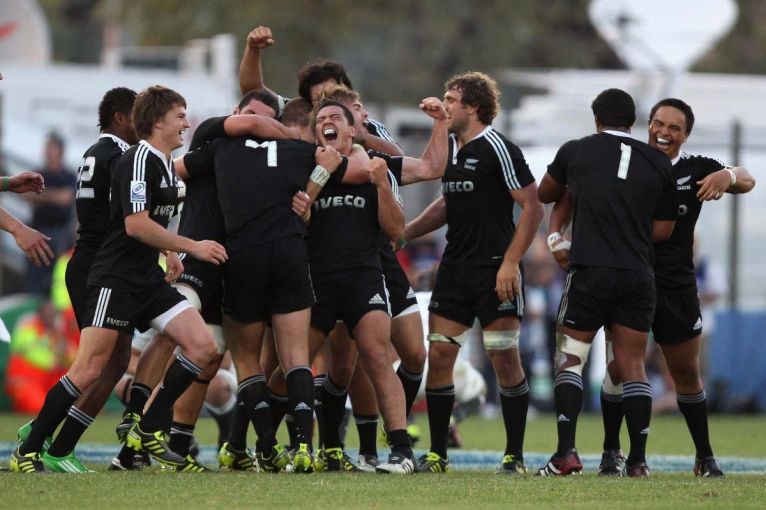 The 2011 U20 World Championship winners produced 16 internationals for the All Blacks (Photo David Rogers/Getty Images)
The 2011 U20 World Championship winners produced 16 internationals for the All Blacks (Photo David Rogers/Getty Images)
But the All Blacks began an almost imperceptible decline in 2017 – from only losing one test each year between 2012-2016 (and none in 2013) – they lost two in each of 2017, 2018 and 2019.
And a win record which sat at 85 per cent between 2010 and 2019, has dropped to 70 per cent since 2020, and the talent has not flowed as freely or as quickly from the Under-20 team to the All Blacks.
If New Zealand’s schools and age-grade programmes were once the envy of the world, they no longer are, and the recent difficulties the All Blacks have encountered in the global arena partly reflect a weakness or deficiency in the high-performance identification and development system.
The inconvenient truth is that New Zealand may not be as good at finding and nurturing rugby players as it once was and may even have been surpassed on this front by England and France.
But New Zealand’s appearance in the 2025 final is perhaps the first sign that it is rediscovering its age-grade mojo. Was this, coming after New Zealand Under-20 finished third last year, the first green shoots of recovery?
A sign that New Zealand has re-discovered what it needs to do to be more successful at age-grade level and consequently better prepare its emerging talent to succeed with the All Blacks?
One convincing tournament, might of itself, not be enough to start thinking New Zealand’s rugby pathways are all now fixed, but there are supplementary factors to suggest there is better connection between the Under-20 team and the All Blacks.
We define our country by the style of rugby we play, and the next generation look at that and say they want to be a part of that and the Under 20s is incredible. It is a long time since they have been there [final], and we are just so pleased for them.
Scott Robertson
All Blacks coach Scott Robertson, who took charge of the Under-20 team in 2015 and 2016, has made it a point to keep himself abreast of developments within the age-grade team and spoke to the players before they headed off to Italy.
“Our connection to it with the All Blacks is important,” he says. “We have been into their camp, and we have talked to their coaches regularly.
“They are similar to the way we play. They have got similar athletes and players, and players of character and they play with a lot of courage which is exciting.
“We define our country by the style of rugby we play, and the next generation look at that and say they want to be a part of that and the Under 20s is incredible. It is a long time since they have been there [final], and we are just so pleased for them.”
Matt Sexton, who stepped in as head coach of the Under-20s after Milton Haig unexpectedly stood down on the eve of the tournament, agreed that there is stronger alignment and a better appreciation of what skills and abilities are needed to make it into the professional ranks.
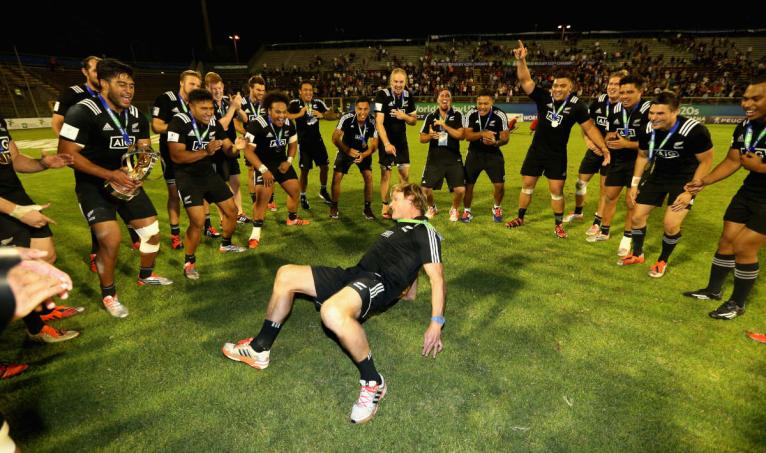 Current All Blacks coach Scott Robertson was a former U20s coach and knows the importance of the player pathway (Photo David Rogers/Getty Images)
Current All Blacks coach Scott Robertson was a former U20s coach and knows the importance of the player pathway (Photo David Rogers/Getty Images)
He says that the aim is for 80 per cent of the cohort to go on to be full-time professionals in Super Rugby, and ideally, for those players to be equipped to play the style of rugby prescribed by the All Blacks.
And that’s arguably been the missing piece since 2017. Not only has the Under-20 team not been sending through enough graduates, but they have also lacked some of the critical skillset development that the All Blacks need.
Specifically, they have lacked the grounding in set-piece work, a full understanding of how to implement a complex kicking strategy and an appreciation of general game management.
This is primarily because New Zealanders grow up with an enormous focus on pass-and-catch, with most school and club teams adopting wide-wide attack patterns that are built on the natural speed and athleticism of the players.
This natural propensity to play fast and run from everywhere is why New Zealanders are so good at exploiting space through their timing, angled runs and accurate skill-sets, but it leaves them a little undercooked in set-piece execution in comparison with the rivals.
“You look at the way in which we play the game, and we take direction from the All Blacks,” says Sexton.
[Matt] Sexton says that the creation of the Under-20 Rugby Championship has been critical in helping emerging players get exposure to powerful scrummaging teams and clever lineout operators and that it has helped instil a better understanding of how Test rugby is played.
“Sometimes we are a little behind in the physical development, but we are working hard to bridge that gap. We can certainly play, but we sometimes do a bit of a catch-up job in some of the areas in which we struggle sometimes, like set-piece.
“We have got good technical coaches who get alongside them and make that area is solid. Because if you don’t have the ball, it is quite challenging.
“It is a mindset. You look at the Six Nations and they are playing some really good footy. They have a set-piece focus and they have got a good all-round game.
“Our approach is that set-pieces are about starting the game and we probably don’t put as much emphasis on that as other countries do, which is why we have to do a bit of catch-up work.
“We have a set-piece camp where we spend two-and-a-half days in dark places in the maul and the scrum to get us up to a test match level.”
Sexton says that the creation of the Under-20 Rugby Championship has been critical in helping emerging players get exposure to powerful scrummaging teams and clever lineout operators and that it has helped instil a better understanding of how Test rugby is played.
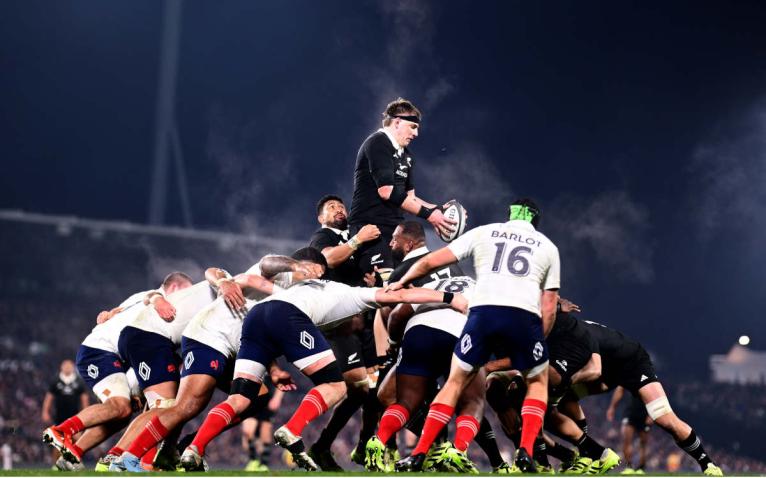 Only two years ago, one of this summer’s breakout stars, Fabian Holland, was playing in the U20 World Championships (Photo Hannah Peters/Getty Images)
Only two years ago, one of this summer’s breakout stars, Fabian Holland, was playing in the U20 World Championships (Photo Hannah Peters/Getty Images)
The most consistent part of the All Blacks performance against France across the three tests, was their scrum and lineout and two relatively recent graduates from the Under-20 team, Fabian Holland and Tupou Vaa’i were among the contributors, while props Fletcher Newell and Tamaiti Williams, only took, respectively two years and three years, to make it from the New Zealand Under-20 team to the All Blacks.
“The catch pass level is still impressive, and we have got great skill-sets from 1-15,” Sexton says.
“In the TRC, we had a few sublime touches, and I think our DNA is strong in that space. It is making sure we get into the more position specific stuff.
“Kicking as well is an area because the attitude of our players is that their first instinct is to play and assess opportunity.
“It is team cohesion, understanding test match rugby because they don’t have a lot of experience in that.”
